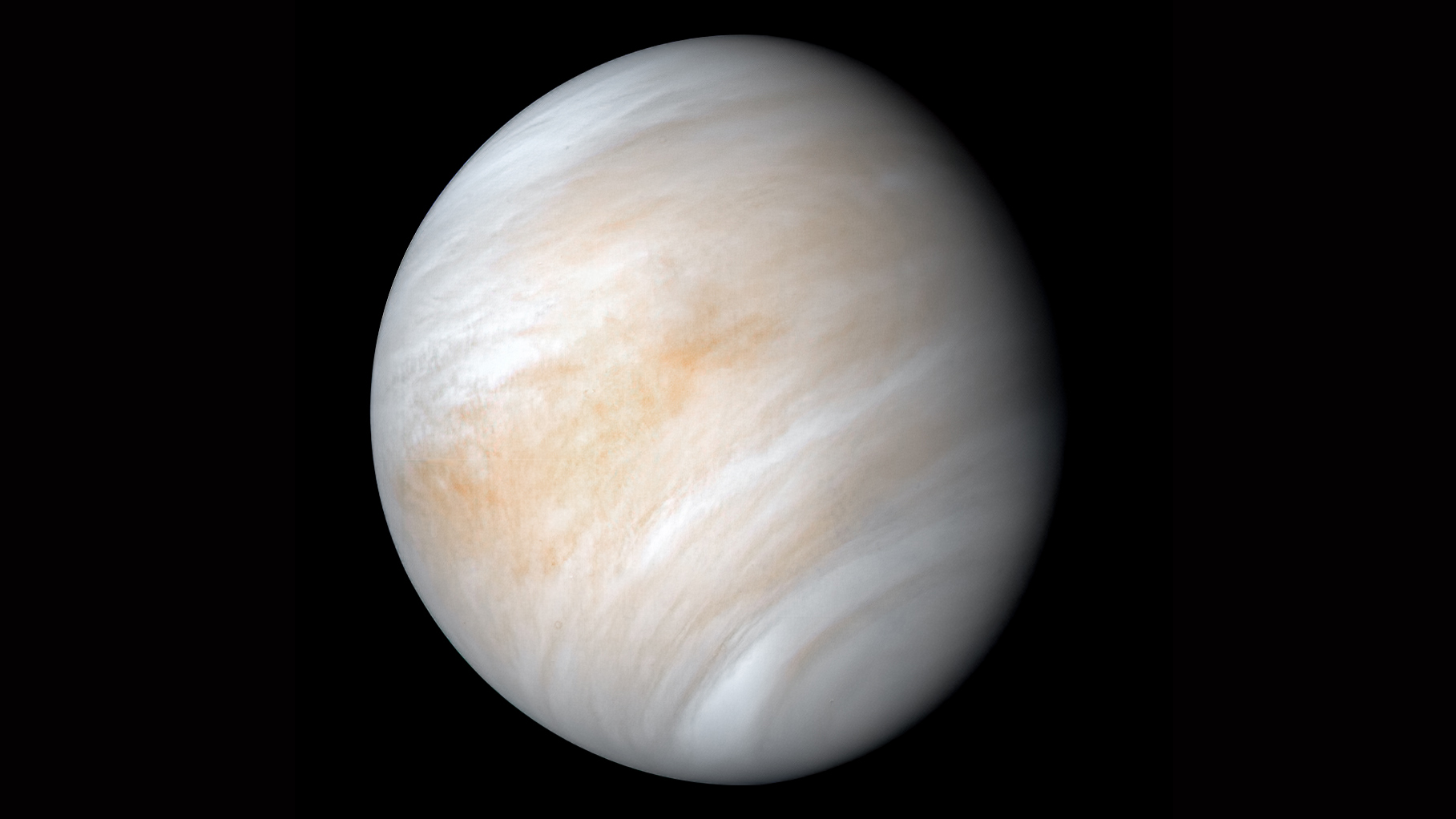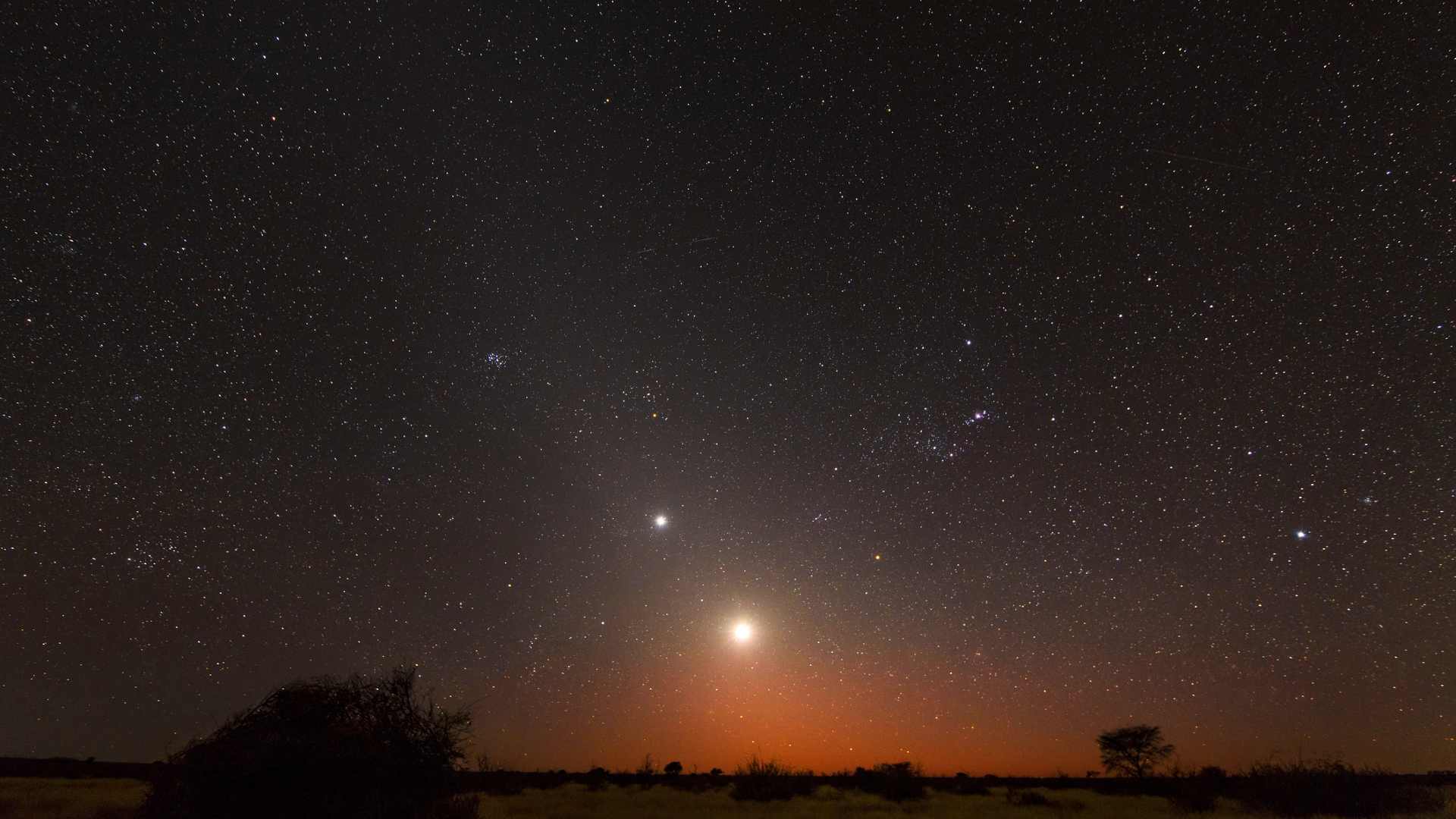India to launch Shukrayaan Venus mission in 2024 after pandemic delays: reports
It will be India's first mission to Venus.

Breaking space news, the latest updates on rocket launches, skywatching events and more!
You are now subscribed
Your newsletter sign-up was successful
Want to add more newsletters?

Delivered daily
Daily Newsletter
Breaking space news, the latest updates on rocket launches, skywatching events and more!

Once a month
Watch This Space
Sign up to our monthly entertainment newsletter to keep up with all our coverage of the latest sci-fi and space movies, tv shows, games and books.

Once a week
Night Sky This Week
Discover this week's must-see night sky events, moon phases, and stunning astrophotos. Sign up for our skywatching newsletter and explore the universe with us!

Twice a month
Strange New Words
Space.com's Sci-Fi Reader's Club. Read a sci-fi short story every month and join a virtual community of fellow science fiction fans!
India plans to launch a new orbiter to Venus in 2024, a year later than planned, according to media reports.
The Shukrayaan orbiter will be the first mission to Venus by the India Space Research Organization (ISRO) and will study the planet for four years, according to SpaceNews, which cited a presentation by an ISRO research scientist at a NASA-chartered committee Nov. 10.
ISRO has been soliciting ideas for instruments for a Venus-based mission since at least 2018, according to its website. At the planetary science committee, ISRO's T. Maria Antonita presented more information about Shukrayaan during a discussion about NASA's new 10-year plan for planetary science, SpaceNews reported.
Related: India looks beyond the moon to Mars, Venus and astronaut missions
"ISRO was aiming for a mid-2023 launch when it released its call for instruments in 2018, but Antonita told members of the National Academies' decadal survey planning committee last week that pandemic-related delays have pushed Shukrayaan's target launch date to December 2024," SpaceNews stated in a Nov. 19 report.
A backup launch opportunity is available when Venus and Earth are next aligned in mid-2026, in such a way to minimize spacecraft fuel use during the planetary transit, Antonita added.
Shukrayaan is set to launch on India's GSLV Mk II rocket, but it may go on the more powerful GSLV Mk III rocket to carry more instruments or fuel, Antonita told the committee. ISRO will make a final decision in the next three to six months.
Breaking space news, the latest updates on rocket launches, skywatching events and more!
The spacecraft will carry several instruments to probe the Venusian environment. The flagship instrument will be a synthetic aperture radar to examine the Venusian surface, which is shrouded by thick clouds that make it impossible to glimpse the surface in visible light. An earlier version flew on the Indian Chandrayaan-2 spacecraft now orbiting the moon, Space News reported.
Another instrument will be a Swedish-Indian collaboration known as the Venusian Neutrals Analyzer, which will examine how charged particles from the sun interact with the atmosphere of Venus, according to The Economic Times. An earlier generation of this instrument launched on the Indian Chandrayaan-1 moon mission of 2008-09, studying how the sun's particles affect a world with a far more tenuous atmosphere.
Shukrayaan will also bring an instrument to Venus to examine the planet's atmosphere in infrared, ultraviolet and submillimeter wavelengths, Antonita said. Earlier in 2020, scientists announced the possible detection of phosphine — a life-friendly element — in Venus' atmosphere, although many in the science community remain skeptical of the findings.
In September, the French space agency (CNES) announced it would also fly an instrument on Shukrayaan. The Venus Infrared Atmospheric Gases Linker (VIRAL) is a collaboration with Russian federal space agency Roscosmos. Antonita added that other instruments have been shortlisted and that India plans to fly an instrument from Germany.
Dozens of missions have flown to Venus since the 1960s, but only a few in recent years. For example, the European Space Agency's Venus Express orbited the planet between 2006 and 2014, and Japan's Akatsuki spacecraft entered orbit in 2015 after a previous unsuccessful attempt. Several spacecraft are also performing flybys of Venus in the near future, including NASA's Parker Solar Probe for solar observation, and Europe's BepiColombo en route to Mercury.
Follow Elizabeth Howell on Twitter @howellspace. Follow us on Twitter @Spacedotcom and on Facebook.

Elizabeth Howell (she/her), Ph.D., was a staff writer in the spaceflight channel between 2022 and 2024 specializing in Canadian space news. She was contributing writer for Space.com for 10 years from 2012 to 2024. Elizabeth's reporting includes multiple exclusives with the White House, leading world coverage about a lost-and-found space tomato on the International Space Station, witnessing five human spaceflight launches on two continents, flying parabolic, working inside a spacesuit, and participating in a simulated Mars mission. Her latest book, "Why Am I Taller?" (ECW Press, 2022) is co-written with astronaut Dave Williams.
